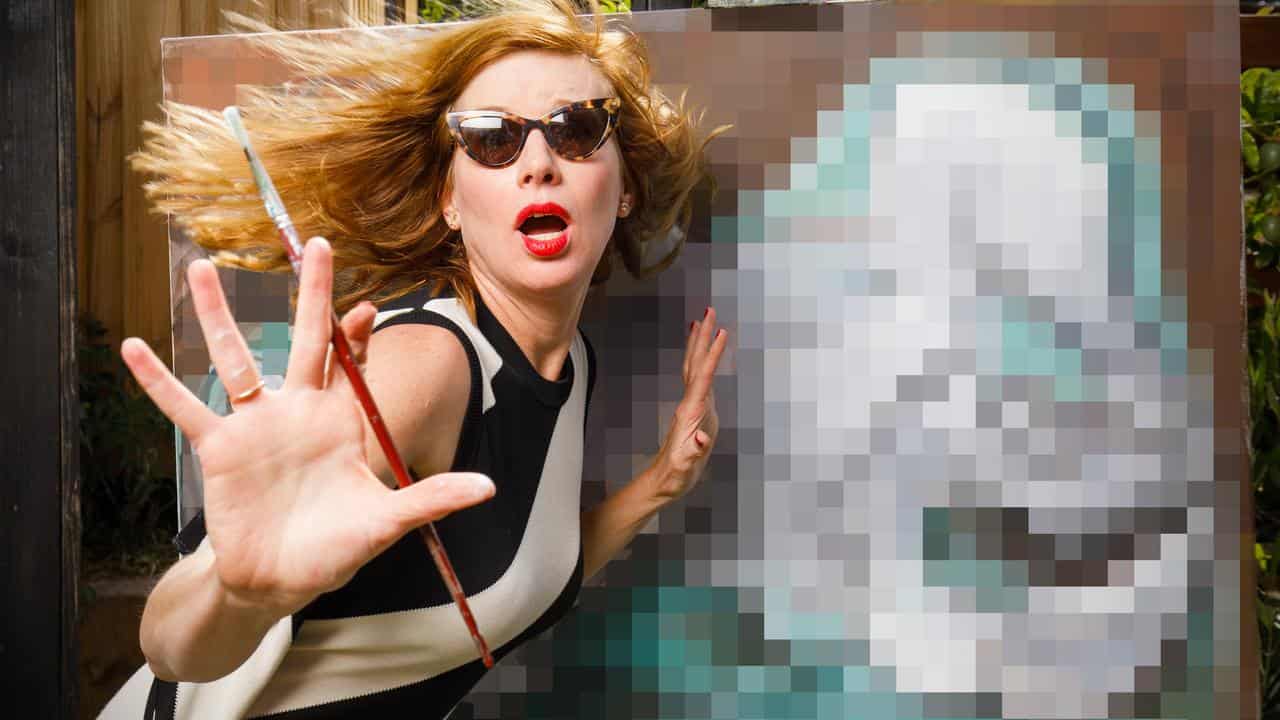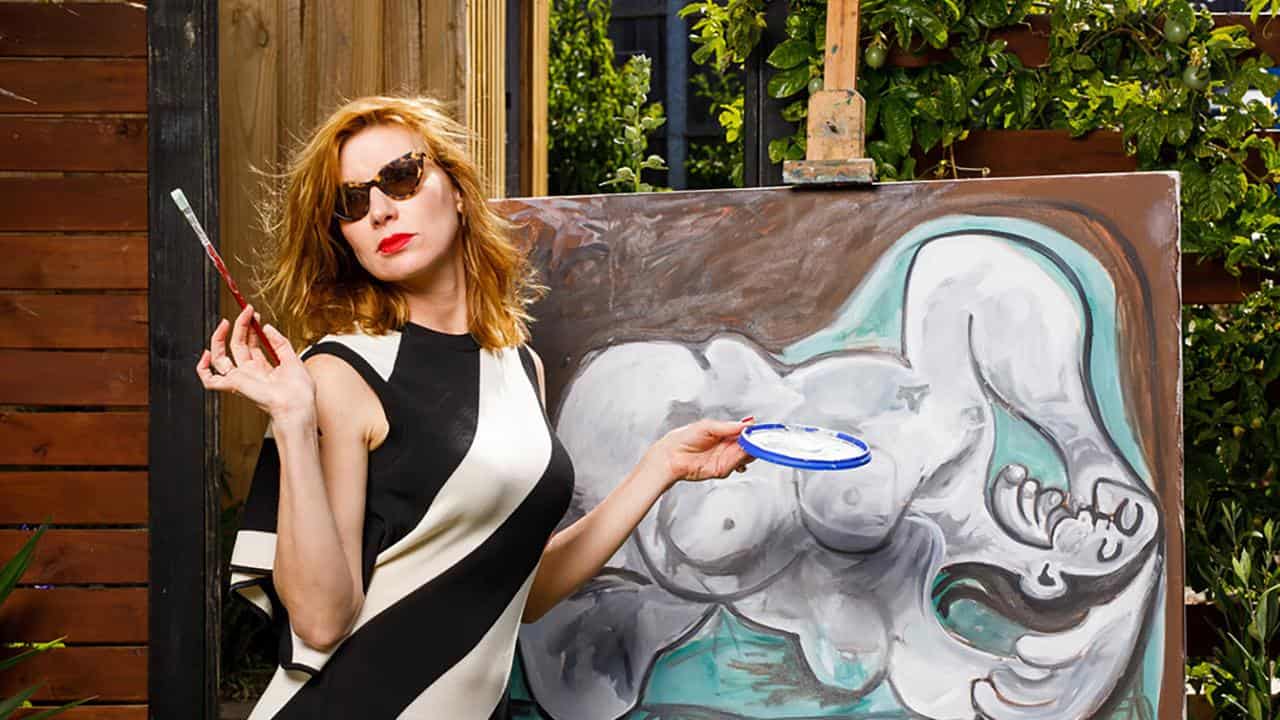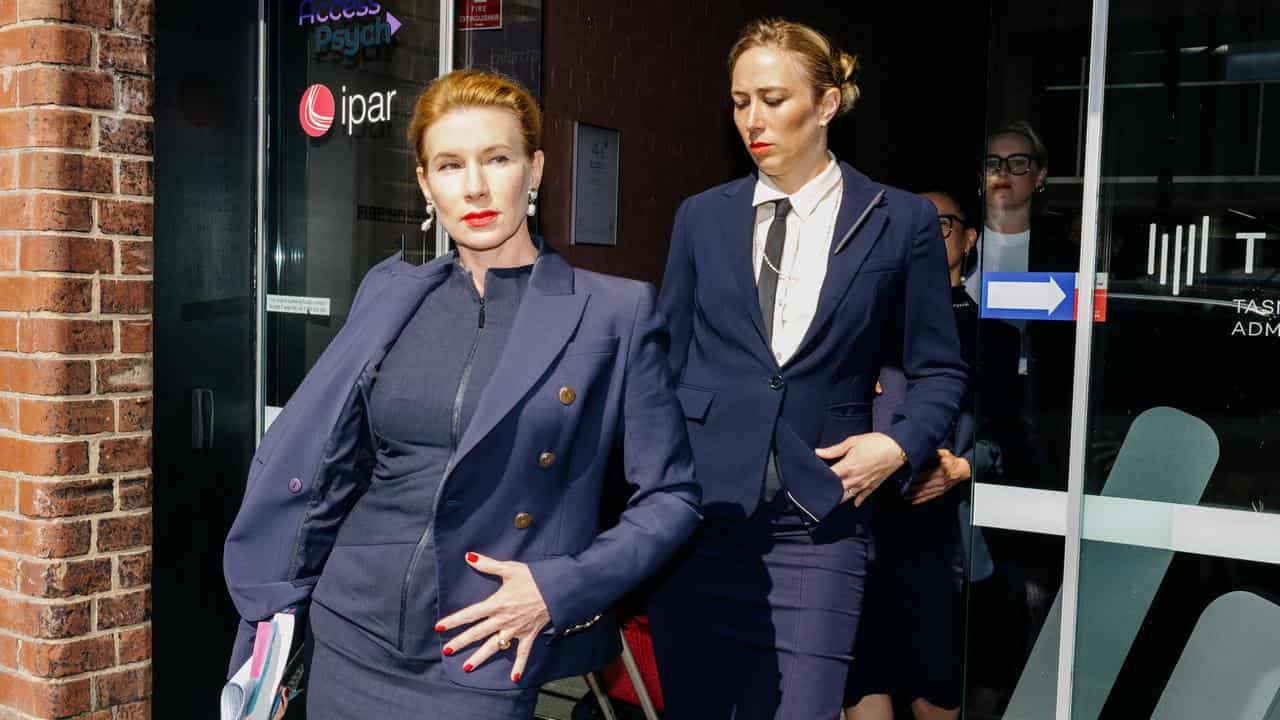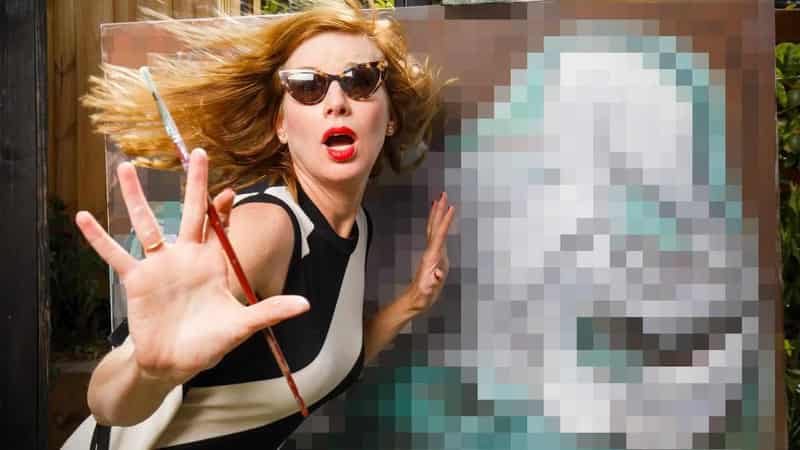
Two paintings attributed to Pablo Picasso and hung in Hobart's acclaimed MONA are fake and were "created" by the wife of the museum's owner.
Kirsha Kaechele revealed in a blog post on Wednesday that she made the paintings because she wasn't able to source a real Picasso that matched the green theme of the museum's now-closed Ladies' Lounge.

"I wished for the lounge to be monochrome," the artist and curator wrote on the Mona website.
"I also had time working against me, not to mention the cost of insuring a Picasso - exorbitant!
"A few days later I was having drinks with my friend Natalie. ‘Maybe I should just make the paintings myself', I said. We laughed - how absurd.
"But then, as with many absurd ideas, I decided it was a good one."
Ms Kaechele added the paintings were created almost four years ago and she waited for "it to blow up" and to be exposed "but it didn't" happen.
Ms Kaechele had previously claimed the paintings were inherited from her great-grandmother who knew the 20th Century Spanish artist, who died in 1973.
One of the works hung in the Museum of Old and New Art was her version of Picasso’s Luncheon on the Grass, After Manet, which she saw displayed in Paris. The other is called Reclining Nude.
She also revealed several other pieces in the Ladies' Lounge weren't authentic, including a mink rug "made" by the furrier of Princess (now Queen) Mary of Denmark and spears presented as antiques collected by her grandfather.

MONA's Ladies' Lounge hit the headlines earlier this year when it was found to be discriminatory by Tasmania's Civil and Administrative Tribunal after a Sydney man complained he had been refused entry to the exhibit.
The tribunal in April ruled MONA had 28 days to stop refusing entry to the lounge to people who didn't identify as ladies.
After its closure, the fake Picassos were moved to a female toilet cubicle to legally display them to female audiences.
Ms Kaechele, the wife of millionaire MONA owner David Walsh, announced in May that the gallery had appealed to the Supreme Court of Tasmania.
The lounge housed some of the gallery's most important works, including a Sidney Nolan, and women attendees were served by male butlers.









